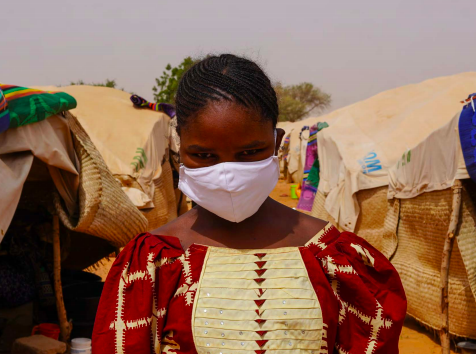
The United Nations released the third update of the Global Humanitarian Response Plan (GHRP) for COVID-19 on 17 July with funding requirements of $10.3 billion. This update reconfirms the geographic coverage of 63 countries, provides updates on the needs and challenges faced at the country level and acknowledges funding received and remaining gaps. The plan reasserts the principles of humanitarian response implementation and underlines the importance of funding the existing humanitarian response plans. There is an increased emphasis on changes at the country level and response progress monitoring throughout the GHRP and the annexes.
The financial requirements for health are $2.86 billion, of which 1.7 billion for Humanitarian Response Plans (HRPs). The cost of inaction on public health will grow exponentially without the right combination of relief and recovery assistance delivered quickly and at scale. The financial needs in the health sector allow for the procurement and delivery of essential laboratory and personal protection equipment, deployment of experts, training of national staff and coordination in countries lacking the capacity to handle the pandemic. While many countries are at the early phase of the outbreak, immediate implementation of these public health measures are critical to saving lives and stopping transmission.
In an effort to prioritize Grand Bargain commitments to support local and national NGOs, the revised GHRP has added $300 million as a supplemental envelop for NGOs, on top of the over $8 billion in country-level requirements. The aim is to allow NGOs to quickly act to the evolving needs on the ground to respond to the pandemic. The four avenues for rapid, flexible disbursements of these funds are: increased resources under the CERF; greater use of NGO-managed pooled funds; increased funding channeled through Country-Based Pooled Funds; and direct giving to NGOs.
The GHRP highlights the critical need to ensure continuity of essential health services. A WHO survey of 103 countries in May - July 2020 showed that more than half have limited or suspended outpatient services and community-based care service delivery platforms as a result of mobility restrictions and resources being diverted to urgent COVID-19 priorities. Furthermore, the upcoming southern hemisphere influenza season is anticipated to further burden already overstretched clinical and public health resources. Vulnerable groups such as older people, children and adolescents, particularly girls, LGBTI people, persons with disabilities, are hardest hit with the effects of the pandemic and their access to preventative measures and treatment for COVID-19 and other essential health services is more difficult.
Underlining the cascading effects of COVID-19, there is a call for scaling up of gender-based violence (GBV) and mental health and psychosocial support (MHPSS) services. Evidence from countries most affected by COVID-19 indicate an increased risk of GBV, particularly domestic and intimate partner violence, yet not all countries have deemed GBV services as essential. The GHRP also reports on the under-resourced nature of mental health services and calls for the integration of MHPSS in all sectors to improve quality of humanitarian programming and to contribute to saving lives, improving wellbeing and reducing suffering.
The Global Health Cluster has contributed to the revision of the GHRP, advocating for the needs of affected people and implementing partners across the 28 country and 2 regional Health Clusters. Operational insights gathered from regular Health Cluster Coordinator webinars and the GHC COVID19 Task Team have ensure the GHRP reflects the critical needs and challenges on the ground.
"Recent estimates suggest up to 6,000 children could die every day from preventable causes as a result of direct and indirect impacts of COVID-19. Diverted health resources could mean the annual death toll from HIV, tuberculosis and malaria doubling."
- Mark Lowcock, UN Under-Secretary-General for Humanitarian Affairs and Emergency Relief Coordinator
Read the July update of the Global Humanitarian Response Plan
